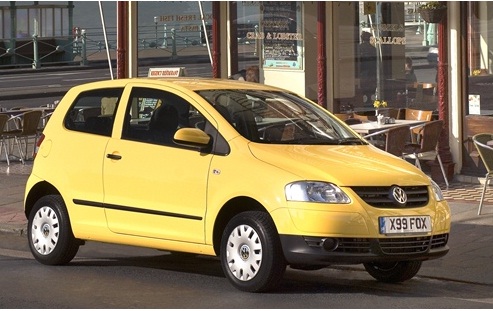The cheapest cars to insure
Cheap to buy and decent for safety, the Chevrolet Spark makes up for what it lacks in performance with its cheap car insurance rate.

2. Citroen C1
The C1 is cheap to run, while servicing costs are also reasonable. Some Citroën deals also come with one year’s free insurance to appeal to young drivers and first-time car buyers.

3. Fiat Panda
Boasting a super-efficient engine, the pocket-sized Panda is a practical city car with low running costs across all models.

4. Vauxhall Corsa Hatchback
Popular with young drivers for well over a decade, the Corsa is a sensible and reliable supermini – all models from 2006 onwards appear in car insurance group 1.

5. Volkswagen Fox and Up
Originally designed as a Brazilian city car, the Fox is cheap to run and offers good fuel economy. Its successor, the Up, won What Car? ‘Car of the Year’ for 2012.

6. Ford Fiesta and Ka
The new Ford Fiesta is officially the UK’s best-selling car, and both the Fiesta and Ka can be found in car insurance group 2, making them the cheapest Ford cars to insure.

7. Nissan Pixo
A collaboration between Nissan and fellow Japanese manufacturer Suzuki, the Pixo is cheap to buy and comes with extremely low running costs.

8. Peugeot Partner Tepee
The Partner Tepee is a compact and durable people carrier that’s only slightly bigger than an average hatchback. Maintenance costs are low and it generally only needs servicing every two years.

9. Skoda Fabia Hatchback and Estate
Part of the Volkswagen group, the Fabia Hatchback and Estate are both in car insurance group 2 as a result of their low prices and solid engineering.

10. Smart Fortwo Coupe and Cabriolet
Smart cars are renowned for being able to squeeze into tight spaces and are often attract cheap car insurance, though servicing and parts can be expensive.

Car insurance groups – how do they work?
Every car on the market belongs to one of 50 car insurance groups set by the Group Rating Panel (members of the Association of British Insurers and the Lloyds Market Association).Typically, the lower a car’s group number, the cheaper it will to be to insure – for example, cars within groups 1-5 are far more likely to attract the cheapest car insurance. Insurers can also use their own grouping system if they want.
When the panel decides on which car insurance groups to assign cars to they look at:
- Car performance: the car’s acceleration and top speed
- Car security: what security features the car has
- Cost of parts: the cost of 23 of the most common parts
- Maintenance: how much and how long the car takes to fix
- Car value: the price of the car as new